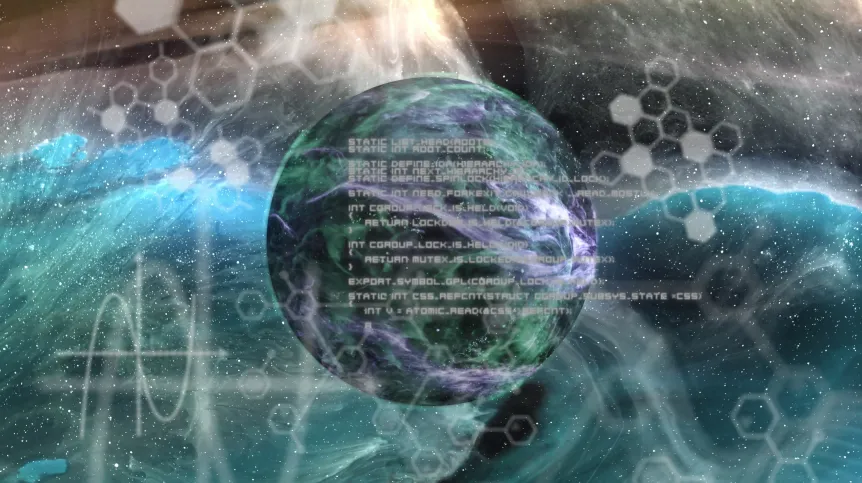
A new study published in Proceedings of the National Academy of Sciences (PNAS) suggests that life on other planets could emerge not only in water, but also in a type of solvent known as ionic liquids, or 'liquid salts'.
These substances, stable at high temperatures and low pressures, could provide an environment conducive to life on planets previously considered inhospitable.
Historically, astrobiologists have adhered to the "follow the water" doctrine, focusing their search for life on planets with conditions favorable for liquid water.
However, scientists from MIT and Wrocław University of Science and Technology now propose a broader view that life could also arise in ionic liquids, which can form on planets with extreme environments, such as high heat and low atmospheric pressure.
"Ionic liquids are substances that remain liquid even at high temperatures and low pressures, even in near-vacuum. Our experiments show that ionic liquids can be formed from materials readily available on distant planets, such as sulphuric acid, and organic compounds containing nitrogen. This offers a potential path for the emergence of life on hot, waterless planets with thin atmospheres," said Rachana Agrawal and the team led by Professor Sara Seager from MIT in the study.
One of the corresponding authors of the paper is Janusz Pętkowski, PhD, from Wrocław University of Science and Technology.
The concept of life's origins on Earth has often been associated with the "primordial soup" theory, where molecules necessary for life are able to move and interact in a liquid medium.
Scientists now argue that ionic liquids could serve this role, providing a liquid environment for life to develop without the need for water.
Ionic liquids are a class of substances that consist entirely of ions, or charged molecules, in their liquid state. Unlike water, which dissociates into positive and negative ions in small amounts, ionic liquids are composed entirely of ions. Thousands of such substances are known, many of which can exist in liquid form at relatively low temperatures. For instance, common table salt only becomes an ionic liquid at temperatures above 801°C.
"Ionic liquids are used in industrial chemistry, such as in the production of batteries and pharmaceuticals. Some enzymes and proteins produced by organisms are stable in ionic liquids," said Pętkowski. "Ionic liquids are even produced by fighting ants of certain species. But we know few examples from nature, because this topic is rarely studied," he added, suggesting that these substances could also be present in desert plants, where they might help prevent water loss.
The team's research was inspired by Pętkowski's involvement with the MIT-Morning Star Missions to Venus initiative, which aims to launch a private mission to study the planet's atmosphere, rich in sulphuric acid.
During preliminary testing, Pętkowski's team found that simple ingredients like sulphuric acid and nitrogen-containing organic compounds could form ionic liquids under the right conditions. These findings suggest that even on planets considered too hot or dry for liquid water, ionic liquids could form naturally, creating a stable environment for chemical reactions.
"It was a simple ionic liquid," Pętkowski said, describing how the team discovered that evaporating excess sulphuric acid from their sample left behind a liquid that could not evaporate. "This showed us that ionic liquids could form from materials that are abundant on rocky planets, like basalt, a typical volcanic rock," he added.
Because ionic liquids do not evaporate, even small amounts can provide a stable environment for chemical reactions, making them ideal for life to emerge in conditions where water would be unsuitable. This opens up the possibility of life on rocky exoplanets with thin atmospheres or even planets without atmospheres at all.
"If you search for extraterrestrial life, it is best to keep an open mind. Be prepared that life on other planets, both within our Solar System and beyond, may be completely different from what we have on Earth. Applying our Earthly template to the phenomenon of life may not be the right approach, and may limit you unnecessarily," Pętkowski concluded.
Ludwika Tomala (PAP)
lt/ agt/













